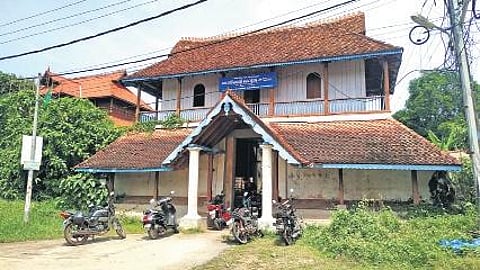

THIRUVANANTHAPURAM: ‘Attingal ano veedu?’ one of the famous movie dialogues by actor Asif Ali in the film, ‘Salt & Pepper’ has enhanced the popularity of the place which has many historically relevant buildings. Attingal is connected to the history of the freedom struggle. Now it is a place surrounded by temples and historic monuments.
Attingal is located in the banks of river Vamanapuram, also known as Kollam puzha. The name ‘Attin kara’ or the land on the banks of a river later became Attingal. The history linked to its origin and the name Attingal way goes way back to the 13th century. The fables about the place mostly revolves around the Attingal Palace also known as Koyikkal Kottaram which is the maternal home of the Travancore royal family.
“The then Venadu king, Udaya Marthanda Varma adopted two queens from Chirakkal Kovilakam in Kodungalloor. They brought their totem Marayikavu Bhagavathi along with them and consecrated at Thiruarattukavu, located near the present day Attingal. The Travancore family gave the queen supremacy over Attingal and its nearby places, collectively known as Sreepadham.
According to the royal tradition, the first male child of the Attingal queen holds supremacy over the Padmanabha Swamy Temple. Later on, King Marthanda Varma ceased the supremacy of Attingal Rani and united it under Travancore,” says the historian Neduvettam Gopalakrishnan.
Looking at the historic relevance of the place, Attingal is always remembered for the 1721 rebellion called the Attingal Revolt, where more than 140 Britishers were murdered in the guerilla warfare. It was during the reign of Queen Aswathi Thirunal Umayamma, who was the rani of Attingal.
While asking about the Attingal Revolt, Neduvattam Gopalakrishnan added, “Attingal revolt was the first mutiny in India. It happened at Nillakkamukku, but not mentioned anywhere in Indian history. Even now, the first rebellion mentioned is of 1857.”